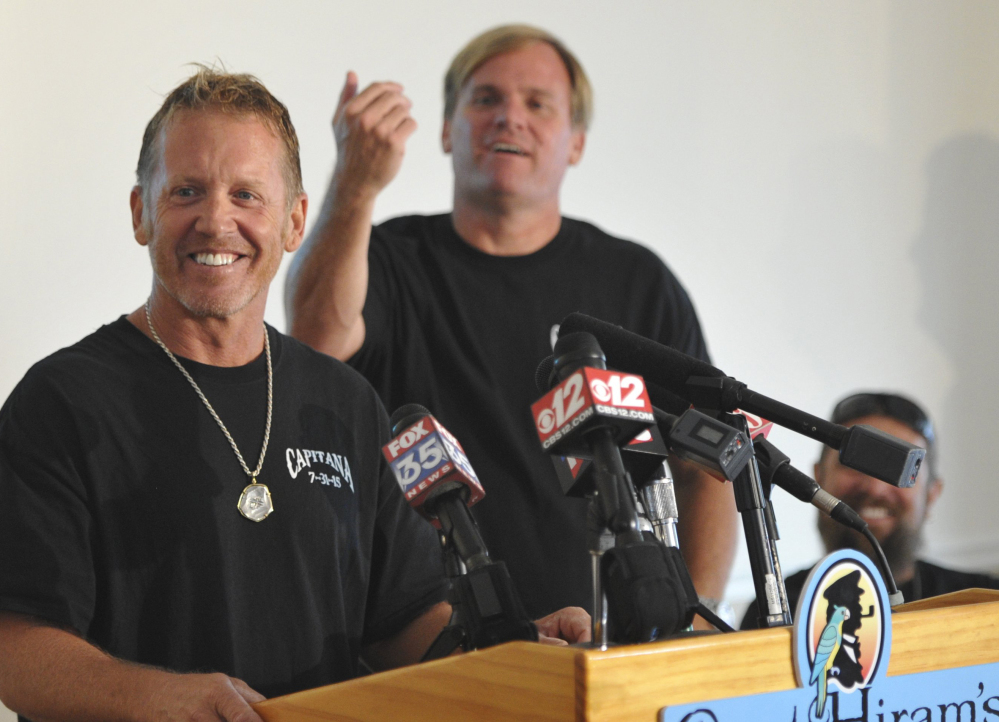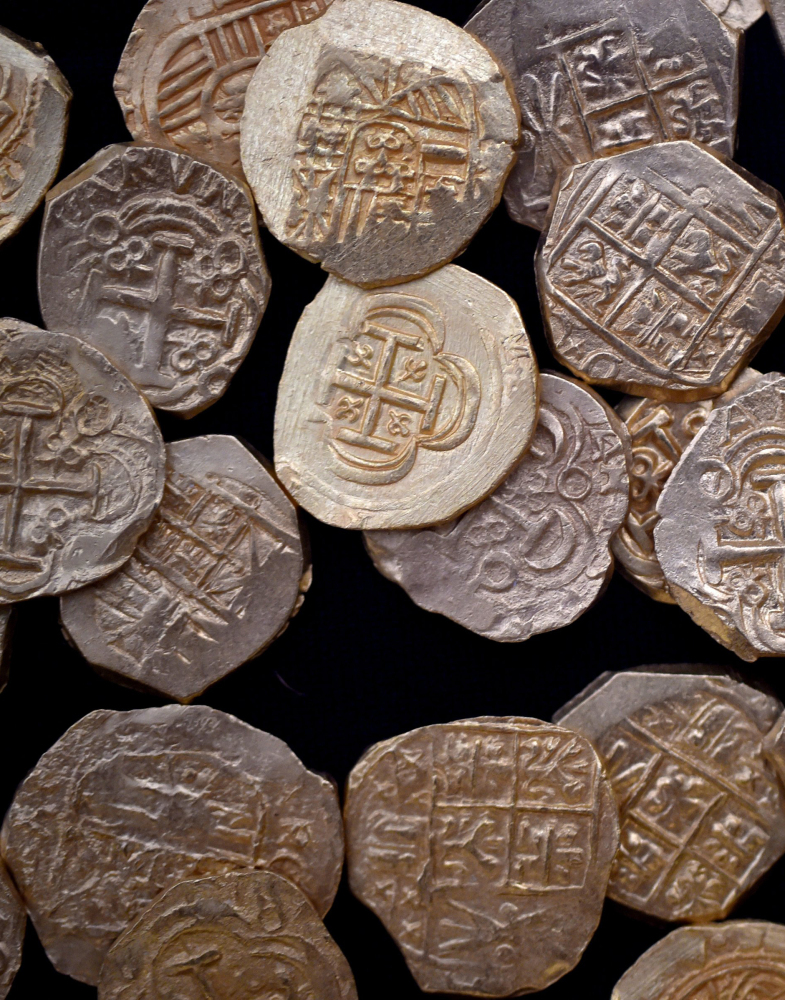SEBASTIAN, Fla. — Diver William Bartlett had just started exploring a 300-year-old shipwreck with a metal detector late last month in the waters off Florida’s Atlantic Coast when he found his first Spanish gold coin. Then one coin became two and two became so many he had to stuff them into his diving glove.
When he resurfaced, “every fingertip was stacked with gold coins, and we knew then we were into something super special,” the captain of his boat, Jonah Martinez, said Thursday.
Over the next two days, Martinez, Bartlett and another treasure hunter, Dan Beckingham, found 350 coins worth $4.5 million, the most valuable find from the 1715 shipwreck site in recent decades.
Eleven treasure-laden ships that made up the 1715 Fleet were heading to Spain from Havana on July 31, 1715, when they encountered a hurricane off Florida’s central coast. The winds and waves smashed the ships onto reefs, claiming as many as 1,000 lives in one of colonial Spain’s biggest maritime disasters off Florida.
Now it’s turning out to be a treasure trove.
In June, a family of treasurer hunters found $1 million in gold coins in area south of the latest discovery.
The latest group of treasure hunters to find millions of dollars in gold coins from the 1715 Fleet shipwrecks said they believe “magic” has played a role in the discoveries this summer, coming on the 300th anniversary of the sinking of Spanish colonial galleons.
They expect more discoveries to come, with $400 million in coins still undiscovered in a coastal area stretching from Melbourne to Fort Pierce, known as Florida’s Treasure Coast.
“Five years ago, before I got into this business, I would have told you that magic is in fairy tales,” said Brent Brisben, whose salvage company, Queens Jewels, owns rights to the 1715 Fleet shipwreck site.
“I truly now believe that there is an energy that pervades these shipwrecks, that I can’t quantify. I truly believe that these shipwrecks wanted their story to continue, that this magically happened on this anniversary because this story still needs to be told and it’s currently unfolding.”
Brisben’s company purchased the salvage rights to the shipwreck five years ago from the family of treasure hunter Mel Fisher, who won a lengthy court battle in the 1980s for the rights to the shipwrecks. During the legal battle, the Spanish government never asserted an interest in the lost treasure and so it has no claim on it. The state of Florida did assert a claim, and it’s entitled to 20 percent of found artifacts for display in a museum in Tallahassee. The remaining discoveries are split between Brisben’s company and whoever finds the treasure after a federal judge in Miami signs off on it.
For any treasure found washed up on land, “it’s finders, keepers,” Brisben said.
Send questions/comments to the editors.




Success. Please wait for the page to reload. If the page does not reload within 5 seconds, please refresh the page.
Enter your email and password to access comments.
Hi, to comment on stories you must . This profile is in addition to your subscription and website login.
Already have a commenting profile? .
Invalid username/password.
Please check your email to confirm and complete your registration.
Only subscribers are eligible to post comments. Please subscribe or login first for digital access. Here’s why.
Use the form below to reset your password. When you've submitted your account email, we will send an email with a reset code.